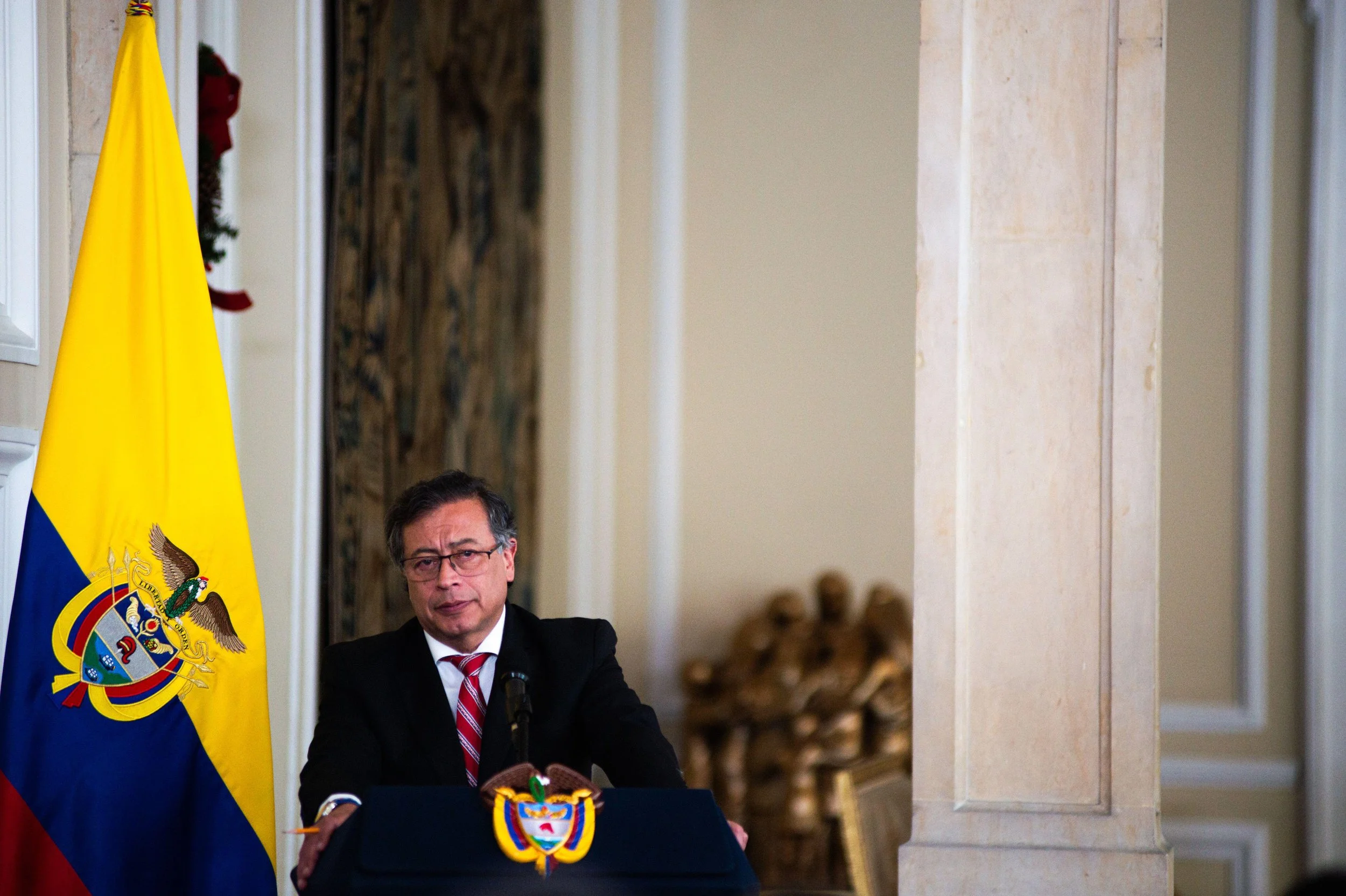Colombia’s Gustavo Petro gives permission to attack Trump
by David Agren, writer at large.
Colombian President Gustavo Petro lost his mind in a series of X posts. He decried migrants being returned to Colombia in chains. He also denied US military planes permission to land, despite such deportation flights previously being routine – though done with civilian aircraft.
The Trump administration responded with a predictable flurry of tariffs, travel restrictions and the cancellation of visa appointments at the US embassy in Bogotá. Petro predictably backed down, but not before unleashing an anti-US screed.
The tantrum highlighted the treatment of migrants being sent back to Latin American countries. Shackled passengers opened the emergency exits on a sweltering deportation flight with no air conditioning that had been forced to land in the Brazilian Amazon. A source working with returned migrants in Guatemala commented on the situation there: “We hadn’t seen that before: migrants arriving like that, in chains.”
It also highlighted the complicated politics of responding to Trump. Countries resisting deportations faced crippling tariffs, effectively devastating their export economies.
Honduras President Xiomara Castro convened a meeting of the Community of Latin American and Caribbean States (CELAC) to respond to the Colombian controversy. Castro, the current president of CELAC, appeared to be rallying the Latin American left. But she cancelled the meeting after leaders decided against attending – most notably Mexican President Claudia Sheinbaum –presumably not wanting to provoke Trump.
In response to questions about Petro’s outburst, Sheinbaum spoke of Mexico receiving nearly 4,100 deportees. She added:
“Mexico has a very important history of repatriation in its relationship with the United States. Past presidents have done so, as has President Andrés Manuel López Obrador, first with the Trump administration and then with the Biden administration. So there are coordination mechanisms that have existed for a long time.”
Sheinbaum also reiterated Mexican plans for receiving deportees, christened, “México te abraza” (“Mexico embraces you”). The plan provides migrants with MXN$2,000 for covering transportation costs to their places of origin and enrolment in social services. “Migrants are heroes of the homeland,” Sheinbaum has said in various iterations.
That “hero” discourse troubles activists in Mexico and Central America working with migrants and deportees. They complain presidents lionize migrants abroad for political gain and take credit for the remittances sent home – billions of dollars that float local economies – while ignoring the poverty, violence and lack of opportunities that send many citizens abroad.
“They’re heroes when they’re there, sending remittances that contribute to the country’s economy. But when they arrive (back in Mexico) they’re nobodies,” said Scalabrinian Father Julio López, coordinator of the Mexican bishops’ migrant ministry. “Nobody is concerned for deportees.”
But Sheinbaum’s discourse shows how deftly she is speaking to the Mexican public through her morning press conference – often with nationalistic flourishes such as “Mexico is respected,” and, “Mexico is not a colony” – while quietly agreeing to Trump’s demands. Those demands include taking non-Mexican deportees – something she previously opposed. The Wall Street Journal recently cited a US official saying Mexico had agreed to the terms similar to that of the Remain in Mexico program: non-Mexican asylum seekers waiting in Mexico for their cases to be heard in US courts.
Sheinbaum’s discourse didn’t change with Petro’s outburst, despite their government’s close relations. US policy also remained unchanged: deportees continue being returned to Colombia and other countries – in handcuffs and aboard US military aircraft.
But the Colombian president rallied the radical Latin American left. That includes parts of Sheinbaum’s base, inherited from her predecessor and mentor, former president Andrés Manuel López Obrador.
The base seemingly takes its cues from the mañanera, along with AMLO’s former communications team and La Jornada (the anti-imperial newspaper aligned with AMLO, and recipient of generous government advertising). Up to now, that base had largely spared Donald Trump in its frothy denunciations on X and social media. They preferred to portray the opposition as unpatriotic and pining for US intervention.
“Trump’s first defeat against the Patria Grande,” crowed YouTuber Manuel Pedrero on X, in a sample of the elation.
But he also outlined the stakes: “It was never a debate about receiving the flights or not, rather the conditions in which migrants would arrive on these flights.”
Some pro-Sheinbaum voices have started taking issue with Donald Trump –most notably media producer Epigmenio Ibarra. Many, however, seem to be stuck in a low-stakes spate and are pulling their punches, accordingly. It remains to be seen what Trump could say or do to jolt the pro-government media and its influencers into full-throated denunciations. Perhaps Petro gave them permission to escalate.


